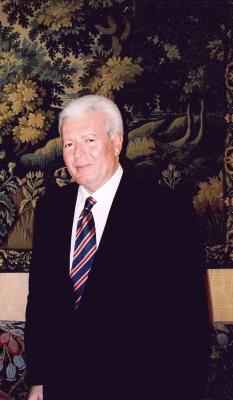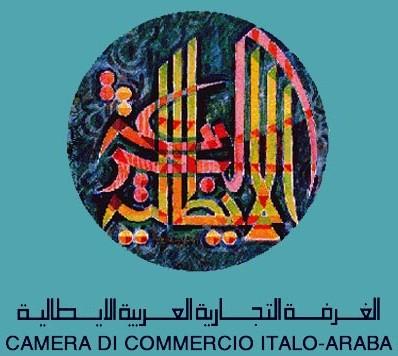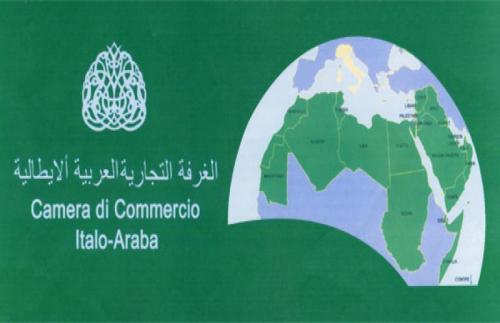Interview: Architect of Italy's ties to the Gulf
Hannah McIntyre
|
9 July 2015

Architetto Sergio Marini, President of the Italo-Arab Chamber of Commerce
ROME – Descending in a military plane through the thick black smoke of burning oil wells, a small Italian trade contingent arrived in Kuwait in the earliest days of liberation after the First Gulf War in 1991.
Amongst them was Sergio Marini, President of the Italo-Arab Chamber of Commerce.
“The pilots weren’t happy about it, you couldn’t see anything, I arrived that morning wearing a white shirt,” Marini recalls, tugging at his collar, “and that evening when I left it was black.”
The Iraqi forces had pursued a scorched earth policy as they retreated from Kuwaiti territory, setting oil wells alight and leaving a path of destruction in their wake.
“There were six or seven of us in the envoy,” Marini explains, “and we were amongst the very first people to meet with the Kuwaitis after the war, of course it was difficult for them having just regained their independence, however it was important to us to go.”
After 30 years in office, Marini is optimistic about the future of the Middle East and the opportunities available to Italy to expand and enter into joint business ventures in the region. Founded in 1972, the Italo-Arab Chamber of Commerce has counted Kuwait as one of its members from the earliest stages.
The Chamber boasts 22 Arab member states, with Kuwait acting as a key investor in the Italian economy and a trade partner of promising mutual benefit. The current member of the board representing Kuwait is Mr Ali Mohamed T. Al Ghanim.
“The Kuwaitis pledged an investment of 500 million euros in early 2013 which is still filtering through,” Marini told the Italian Insider, “of all the Arab member states Kuwait is perhaps the second largest investor, after the United Arab Emirates.”
The effort is clearly appreciated in the face of what Marini admits, can be a difficult climate for investors in Italy, citing “the terrible bureaucracy and slow judicial system, which makes it awkward to do business in this country. Before people blamed the Mafia for putting off investment, the corruption, but personally I think that the main problem is the bureaucracy, it is suffocating. We have now had 13 consecutive quarters of recession; hopefully in 2015 we will be able to turn it around.”
On the other side of the coin, the potential for Italian companies to expand into the Kuwaiti market is an intriguing one, despite the relatively small size of the country.
“In Kuwait there is a market for luxury products. We at the chamber of commerce offer advice and assistance to many Italian businesses, mostly small and medium sized, to enable them to make the most of these potential markets. It isn’t like in the old days, when an entrepreneur could get on a plane with a suitcase of merchandise and start selling. Companies need a solid base, an online presence, and a good reputation to succeed.
“For the many small companies we work with, who form the core of the Italian economy, the Middle East and North African regions are a far more accessible market than say, the Americas or Asia. There aren’t as many transport costs. Perhaps this isn’t true for Northern European countries however around the Mediterranean, for Italy, Spain, France and Greece, there are strong historic trade links with these markets which are important to maintain. In fact for Italy, almost a quarter of our exports outside of the EU go to Arab countries.”
As well as a potential market for Italy’s world-renowned luxury goods such as food and fashion, Marini points to the crucial role that Italian technology and engineering have to play in the Middle East.
“Some 40 percent of our exports in the region come under the category of “mechanics,” and in fact these are the investments which can be the most beneficial to a region,” explains Marini, “industrial investment is essential, it creates jobs and more robust infrastructures.”
Looking to the future of Italian-Kuwaiti collaboration, Marini suggests that joint ventures in emerging markets such as North Africa could be a promising proposition for the years to come.
“Yes, this is something we haven’t yet entered into with Kuwait but joint ventures I think could be very beneficial and will become more common.”
Working in an often unstable region is not without its challenges, however Marini remains a firm believer that close economic links can only be beneficial to the political situation. “Some politicians want to create a division between the EU and the Arab world which should not exist, Sarkozy for example was not good at easing the situation. Yes there are cultural differences at times but I do not think they have to become a problem. Working closely in business strengthens our bonds.”
Marini also points out the strong political and trade links which have traditionally existed between Italy and the Middle East. “Particularly in the post-war era,” he says, “Italy was an influential voice in the Middle East; at times we have been the negotiators between the Middle East and the Western world.”
(This is the first article to be published digitally in a series commissioned by the Kuwaiti Ambassador to Italy, H.E. Sheikh Ali Al-Khaled Al-Jaber Al-Sabah, as part of an Italian Insider Special Report marking 50 years of diplomatic ties between Kuwait and Italy)

The logo of the Italo-Arab Chamber of Commerce



